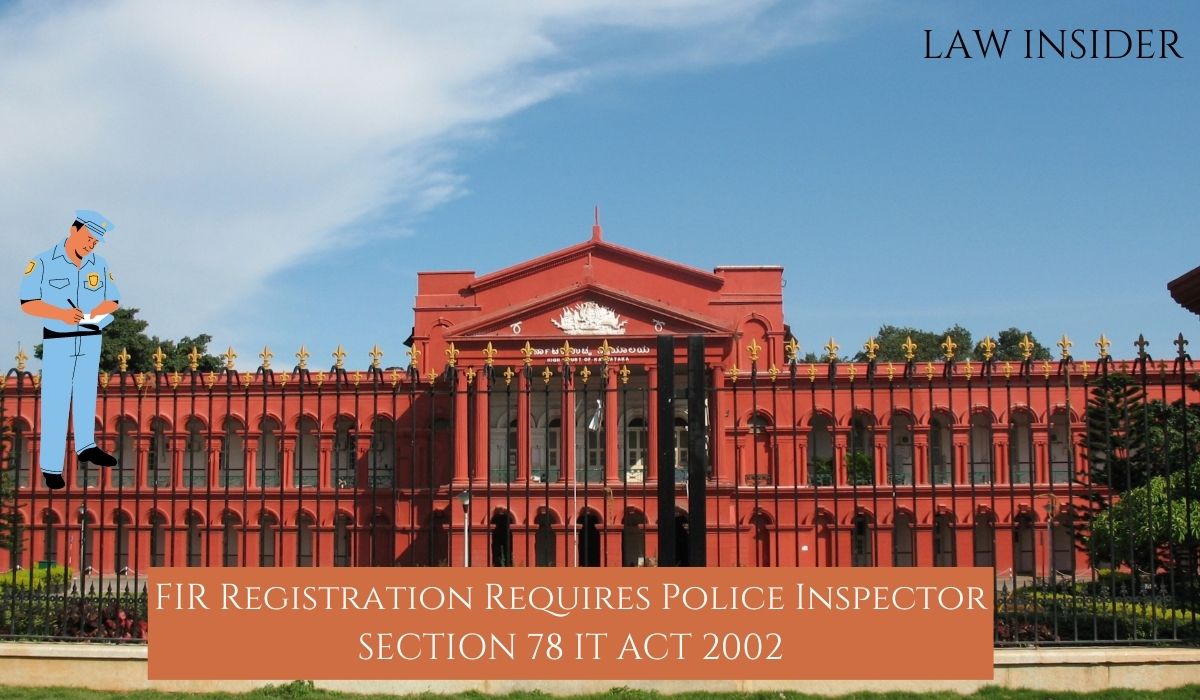LI Network
Published on:18 July 2023 at 14:10 IST
The Karnataka High Court has provided a clear interpretation of Section 78 of the Information Technology Act, 2000, stating that an officer below the rank of Police Inspector can register a First Information Report (FIR) for offenses punishable under Section 66E of the Act. However, the subsequent investigation must be conducted by an officer not below the rank of an Inspector of Police. The ruling was delivered by a single judge bench of Justice V Srishananda at the Dharwad bench.
The case in question involved a petition filed by Neha Rafiq Chachad, who contested the registration of an FIR against her for allegedly creating a fake Instagram account using the complainant’s name and posting obscene and offensive content.
Chachad argued that the offense was non-cognizable and contended that the investigation agency should have invoked Section 155(2) of the Criminal Procedure Code (Cr.P.C.). The petitioner claimed that the Police Sub-Inspector lacked the authority to register the case and sought the quashing of further proceedings.
In response to the petition, the bench referred to Section 66E of the Information Technology Act, which pertains to the punishment for violation of privacy.
The court noted that there was evidence of a post on the Instagram account, which was not opened by the complainant, and specific allegations that the petitioner had created the fake account and posted illegal and offensive content.
The bench concluded that the registration of the case and subsequent investigation were necessary to uncover the truth behind the incident.
The court’s ruling clarified the requirements for FIR registration and investigation under the Information Technology Act.
It emphasized that while a Police Inspector is needed for conducting the investigation, the initial registration of the FIR can be carried out by an officer below that rank.
This interpretation aims to ensure a balanced approach, allowing for the prompt registration of cases while entrusting the investigation to a higher-ranking officer with more experience and expertise.
The judgment by the Karnataka High Court highlights the importance of adhering to the provisions of the Information Technology Act and the role of different ranks within the police force in handling cybercrime cases. By maintaining a clear distinction between the registration and investigation stages, the court aims to enhance the efficiency and effectiveness of the legal process, safeguarding the rights of both the complainant and the accused.
This ruling sets a precedent for future cases involving offenses under Section 66E of the Information Technology Act and provides guidance to law enforcement agencies regarding the roles and responsibilities of different ranks in handling cybercrime investigations. It brings clarity to the procedural aspects of registering FIRs and conducting investigations in such cases.
As technology continues to advance, the proper application and interpretation of legislation such as the Information Technology Act become crucial in tackling cybercrimes. The Karnataka High Court’s ruling underscores the need for a comprehensive understanding of the law to ensure a fair and effective justice system in the digital age.

